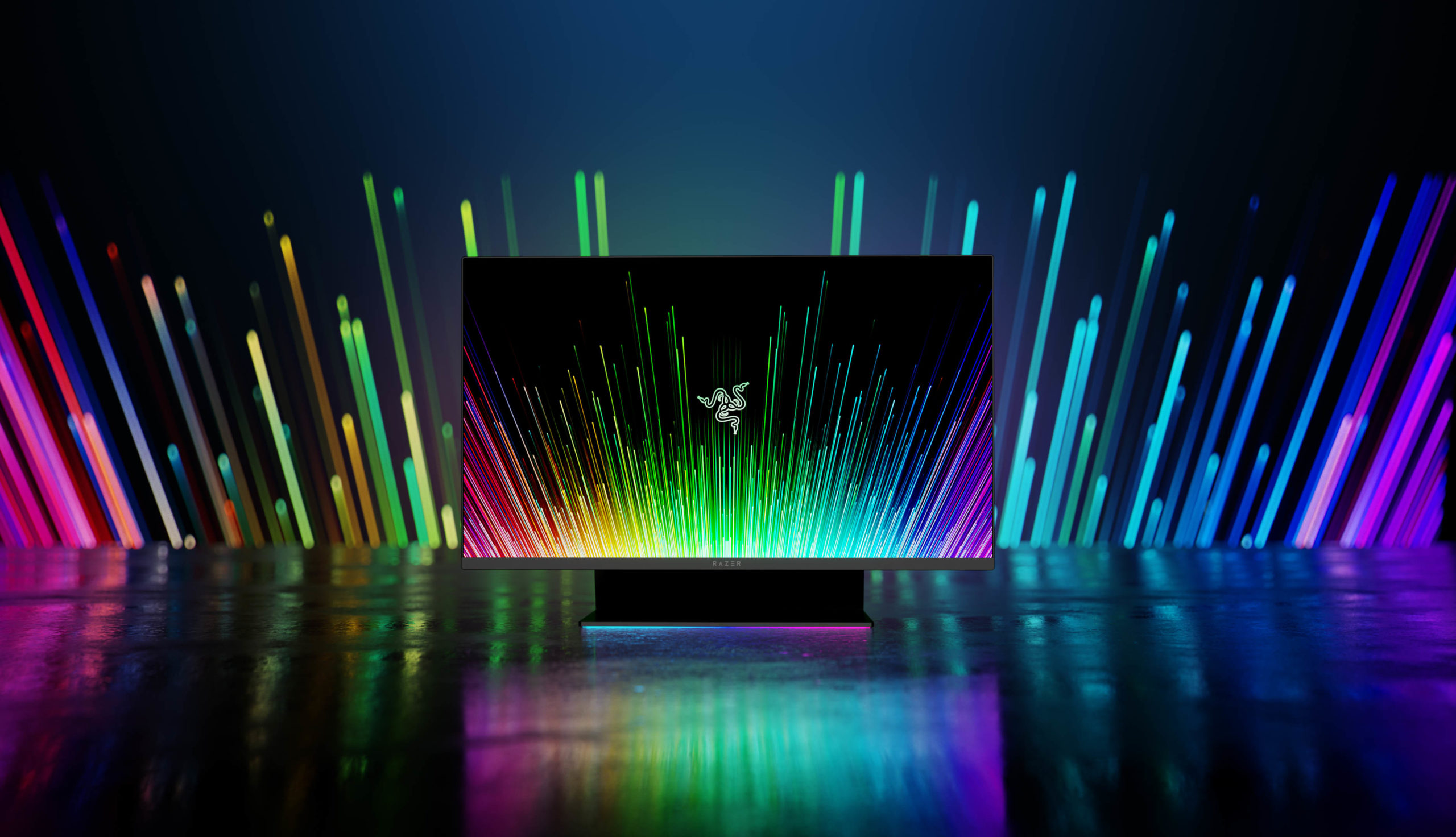Razer only entered the gaming monitor game in 2019, but that first foray into the market quickly earned a spot on our Best Gaming Monitors page. The Razer Raptor 27 stood out with high-level gaming specs and unique details, like cable management channels. The updated, primarily faster Raptor 27 announced today shows the gaming brand isn’t done trying to make its mark in the ultra competitive space.
Razer Raptor 27 Specs
| Razer Raptor 27 (2021) | Razer Raptor 27 (2019) | |
|---|---|---|
| MSRP at Launch | $800 | $700 |
| Max Resolution & Refresh Rate | 2560 x 1440 @ 165 Hz | 2560 x 1440 @ 144 Hz |
| Adaptive-Sync | Nvidia G-Sync Compatible, AMD FreeSync Premium | Nvidia G-Sync Compatible, AMD FreeSync |
| Response Time | 1ms with ultra low motion blur | 1ms with ultra low motion blur |
| Panel Type | IPS | IPS |
| Screen Size / Aspect Ratio | 27 inches / 16:9 | 27 inches / 16:9 |
| Native Color Depth / Gamut | 8-bit + FRC / 95% DCI-P3 | 8-bit + FRC / 95% DCI-P3 |
| I/O | HDMI 2.0b, DisplayPort 1.4, USB-C, 2x USB 3.2 Gen 1 Type-A | HDMI 2.0b, DisplayPort 1.4, USB-C, 2x USB 3.2 Gen 1 Type-A |
The biggest difference between the original Raptor 27, which Razer confirmed to Tom’s Hardware will still be available, and 2021 Raptor 27 is the refresh rate. Razer is upping the speed from 144 Hz to 165 Hz. While that’s not a big enough boost to warrant an urgent upgrade from current Raptor 27 owners, iit does make the screen a little more competitive as more 360 Hz screens roll out.
Another, more minor, change comes in Adaptive-Sync tech. While the original Raptor 27 fights screen tear with G-Sync Compatibility and standard FreeSync, the new Raptor 27 throws an extra bone at AMD GPU users with a bump to FreeSync Premium. Compared to standard FreeSync, FreeSync Premium adds low framerate compensation.
Razer is also bragging about the 2021 Raptor 27 being the first THX-certified monitor. But Razer has owned THX since 2016, so this isn’t a particularly remarkable “first.” Still, Razer claims the Raptor 27’s certification required “over 400 individual tests to ensure color, tone and images are displayed as their creators intended.”
Just like the 2019 Raptor 27, the 2021 model relies on a 27-inch, 1440p resolution IPS panel that’s specced to cover 95% of the DCI-P3 color space, along with VESA’s lowest-grade certification for HDR performance, VESA DisplayHDR 400.
While there’s no exciting change here, we could see why Razer would want to stick with what works. In our 2019 Raptor 27 review, we recorded 93.39% DCI-P3 coverage with an error of only 0.83 Delta E (dE) after calibration and setting the monitor to 200 nits brightness.
The new Raptor 27 also inherits the same design choices that made the original Raptor 27 so attractive. That includes its textured fabric backing and aluminum stand complete with look-at-me green cable management channels around back and a 90-degree tilt. And, of course, it wouldn’t be a Razer gaming monitor without a touch of RGB.
Razer’s also updating Synapse to include optimal viewing modes and to let you play with the on-screen display (OSD) the same way you do everything else…via the PC (rather than the monitor’s joystick).
The new Raptor 27 is available for pre-order now for $800. Razer also today announced the availability of a VESA adapter for mounting both the 2019 and 2021 Raptor 27 for $100.
